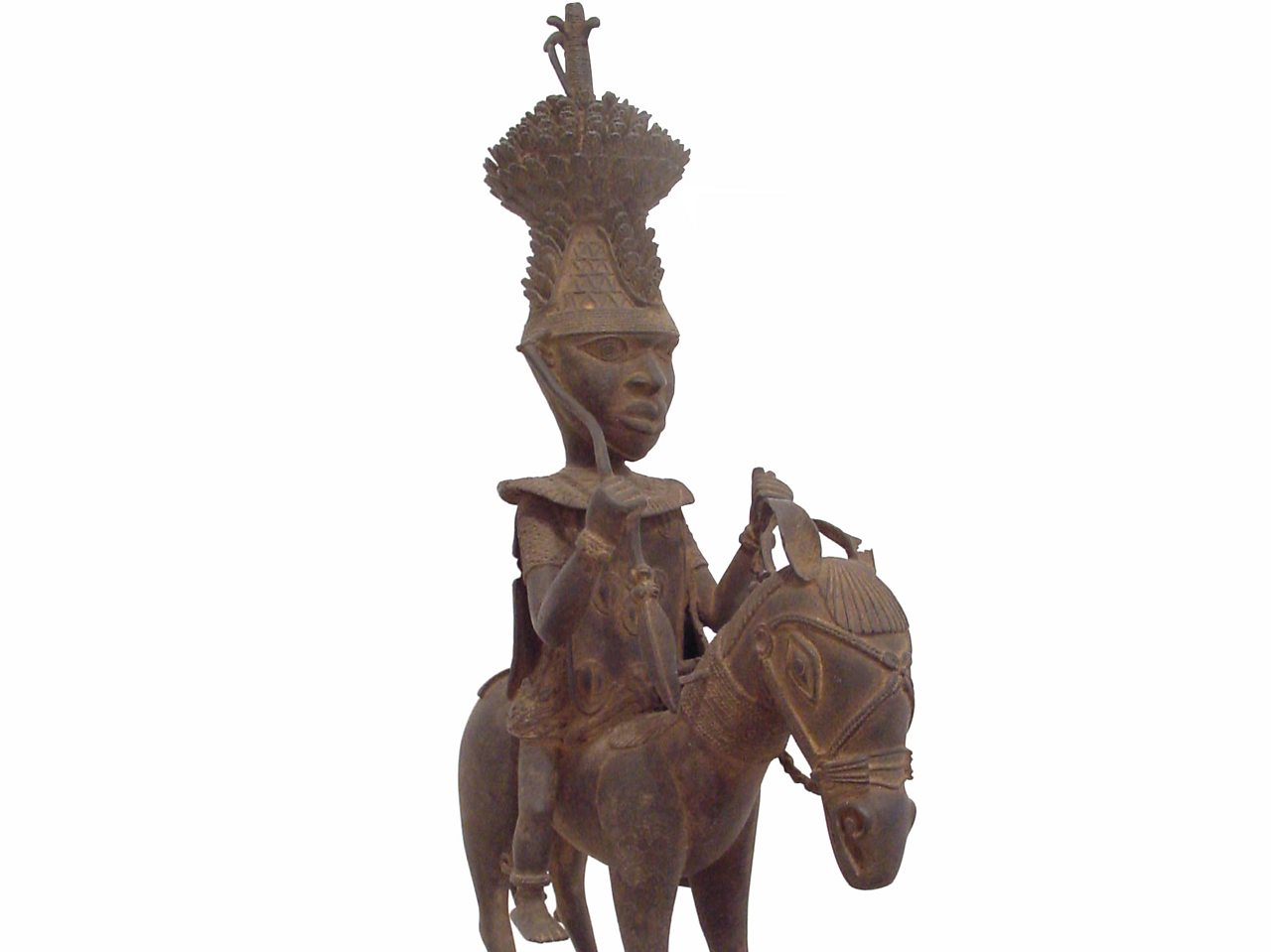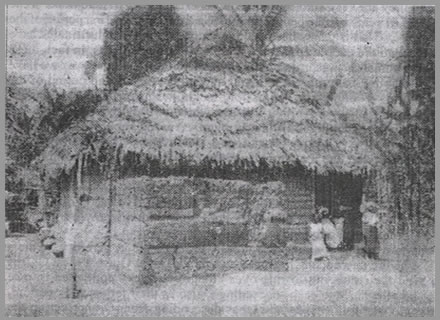Being a constitutional democracy, Nigeria elects its representatives, however, the hundreds of ethnic communities scattered across the country still acknowledge their own traditional rulers.
It is widely accepted that out of these traditional leaders, the monarch of the Bini people of Benin is one of those highly respected. The Benin kingdom was a pre-colonial empire located in what is now southern Nigeria.
The capital city of the Benin Kingdom was Edo, now known as Benin City. It is important to note that the Benin Empire is completely different from the Republic of Benin, formerly known as Dahomey.

The Edo people were the original inhabitants of the Benin Empire and were initially ruled by the Ogiso (kings of the sky) dynasty, who called their land Igodomigodo. The Ogiso dynasty would eventually end, giving rise to the Oba dynasty.
People who visit Nigeria are often fascinated by the high esteem in which many Nigerians, especially the Edo people, hold the Oba of the Benin Kingdom.
Also known as Omo N’Oba, the Oba of Benin is the traditional ruler of the Edo people and head of the historic Eweka dynasty of the Great Benin Empire. The name Oba was derived from Oba Eweka I, Benin Kingdom’s first Oba who rose to power as a ‘boy-king’ between 1,180 A.D. and 1,300 A.D.
He ruled over the Benin Kingdom at that tender age alongside a ‘guardian’ after his father, Oranmiyan who was sent to rule faced so much resistance from hostile groups.

A historical account by the BBC state that around the year 900, groups of Edo people started cutting down trees and making clearings in the rainforest. They initially lived in small family groups, but gradually these groups developed into a kingdom. The kingdom became known as Igodomigodo and was ruled by a series of kings, known as the Ogisos.
“In the 1100s, there were struggles for power and the Ogisos lost control of their kingdom. The Edo people feared that their country would fall into chaos, so they asked their neighbour, the King of Ife, for help. The king sent his son Prince Oranmiyan to restore peace to the Edo kingdom,” writes the BBC.
He, however, met opposition from the kindred of the Ogiso, and was refused entrance into the city when he arrived. Oranmiyan had to camp at a place called Use, which means “making of a city.” He stayed there for some years and was not crowned because of the opposition by some Ogiso people, particularly, Irebor, who would rule almost half of the kingdom as an administrator, surrounded with soldiers.
The kingmakers tried to depose Irebor but this did not materialize. Living in fear and suspicion of Irebor and his supporters, coupled with the inability to communicate with the people due to his lack of understanding of Edo language, Oranmiyan abandoned his office and reportedly called the Igodomigodo land “Ile Ibinu”, a Yoruba word translated as “a land of annoyance and vexation”.
He further declared that only a child of the soil, who was educated in the culture and traditions of Igodomigodo, could rule the kingdom. While leaving Ile-Ibinu (reportedly corrupted to “Benin” by the Portuguese), Oranmiyan fell in love with Erinmwinde, the daughter of Ogie Ego, a local chief, who ultimately had a male child for him.
Eweka I was the name of that child, who would eventually be the first crowned Oba of Benin and founder of Eweka or Oba dynasty, which is still ruling today.
Eweka’s rule did not, however, come without challenges. Growing up, the kingmakers realized that the child could not speak, thus, the oracle was consulted.
“The oracle prescribed the performance of some rites and the playing (akhue) marble by the young prince. After the rites, while playing the marble, he uttered the Yoruba words “owo mi ka” meaning “I captured it” when he struck the only remaining marble. His first Yoruba expression was as a result of his training in the Yoruba language by Edigun at Use, who was one of those who came from Ife with Oranmiyan. Since then, Use became a place where all Obas perform the marble playing ceremonies preceding their taking of titles,” writes Naij.com.

For a period of over 30 years, the administration of Benin City was virtually in the hands of Ogiamien family until 1200 AD when the “Boy-King” Eweka I as a young king ruled the kingdom with the assistance of his maternal grandfather Ogiegor, according to accounts by edoworld.net. At the time, the Ogiamen family had lost supporters to the young prince Eweka.
“…It would appear that, early enough in its history, the new Benin dynasty set itself a grand project of territorial expansion rooted, for a start, in the consolidation of a power base in Benin itself.
“This consolidation evidently began with the very first Oba, Eweka I who, beset by severe power rivalries among functionaries inherited from the Ogiso period, organised them into a council of state (Uzama Nihiron) to establish some sense of order in the new polity, relocating the palace to a farther site to remove himself physically from their cloying shadow. The councillors continued to assert themselves against the new rulership until Oba Ewedo (thirteenth century) was forced to make changes in the organisational structure of the state: in the end, the Oba emerged in supreme control, and the respective cadres of authority were subordinated to the monarchy, holding their powers and privileges only by his grace,” excerpts of the book “Once Upon a Kingdom: Myth, Hegemony, and Identity”, stated.
Oba Eweka I reigned for 35 years. When he passed away, his rival children ruled in succession, according to varying accounts. Essentially, the Oba of Benin was the Head of State (Emperor) of the Benin Kingdom until the kingdom’s annexation by the British, in 1897.
It is recorded that when the Portuguese first set foot there at the end of the 15th century, Benin had exceeded many late medieval European cities in urban development.
“The king’s court is as large as the city of Haarlem, and … divided into many magnificent palaces, houses and rooms of the courtiers, and … galleries, about as large as the Exchange at Amsterdam,” Dutch geographer Olfert Dapper wrote in 1668 about the Oba’s court.
The Benin Kingdom was also then at the height of its military and political power and the Oba maintained his independence in spite of pressure from the Portuguese, Dutch, and British.
Oba rule continued for centuries until the arrival of White settlers in 1897. The British introduced imperialist rule in the region and exiled the then-Oba Ovonramwen.

After capturing the empire, the colonialists established the British colony of modern-day Nigeria. Oba Ovonramwen died in 1914, and his throne was never restored to him or his descendants.
However, they all preserved their titles and status as traditional rulers in modern-day Nigeria. Post-imperial Obas of Benin since 1914 include Eweka II (1914-1933), Akenzua II (1933-1978), Erediauwa I (1979-2016), and Ewuare II (2016).
Functions of Oba
The Oba performs several important duties, including settling disputes within his kingdom. He is a peacemaker and although he doesn’t have legal authority to punish anyone, he usually interprets customary laws and helps offenders acknowledge and learn from their offences.
Additionally, the Oba has some authority to handle land matters, especially those that concern land owned by indigenes in the south of Edo, according to Al Jazeera. The people of Edo also consult their Oba on family conflicts and community feuds, explaining that they trust the Oba because he belongs to the royal family and is not into politics.
The kingdom of Benin represents a snapshot of a relatively well-recognized and refined African political system that was in operation before the arrival of European colonialists.










